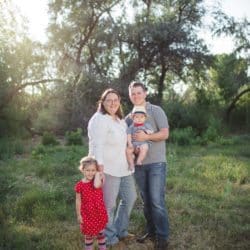All of the little concessions add up.
How has being a military caregiver changed you?
I had to learn how to be a wife and a caregiver at the same time. It has made me reevaluate the definition of quality time. Just because other families spend time out bowling or doing “fun” activities does not mean that my family can or should do that. It is more important for us to exist in a safe space together than to be outwardly social.
What do you think is the biggest misconception civilians have about your situation?
People see a wounded warrior in a social situation and assume a caregiver is exaggerating. What people do not understand is that it takes every iota of strength and willpower for the wounded warrior to pull it together at a party or family gathering. People only see the “normal” side.
What has helped you to cope with the challenges of caregiving?
I accept that I won’t get everything done. I learned to prioritize. Every day we have to look at what is coming up and, if that means my son misses his nap or my daughter is late to an activity, that’s what has to happen.

My Story
Elizabeth cares for her husband, Dustin, who served in Iraq. He sustained a traumatic brain injury (TBI) and suffers from post traumatic stress disorder (PTSD). His symptoms escalated until they became completely debilitating to his job and everyday life. While finishing her master’s degree in education, Elizabeth learned about resources available to veterans with PTSD.
As a Dole Fellow, her goal is to bring awareness to the benefits of treating the whole family, not just the veteran.












